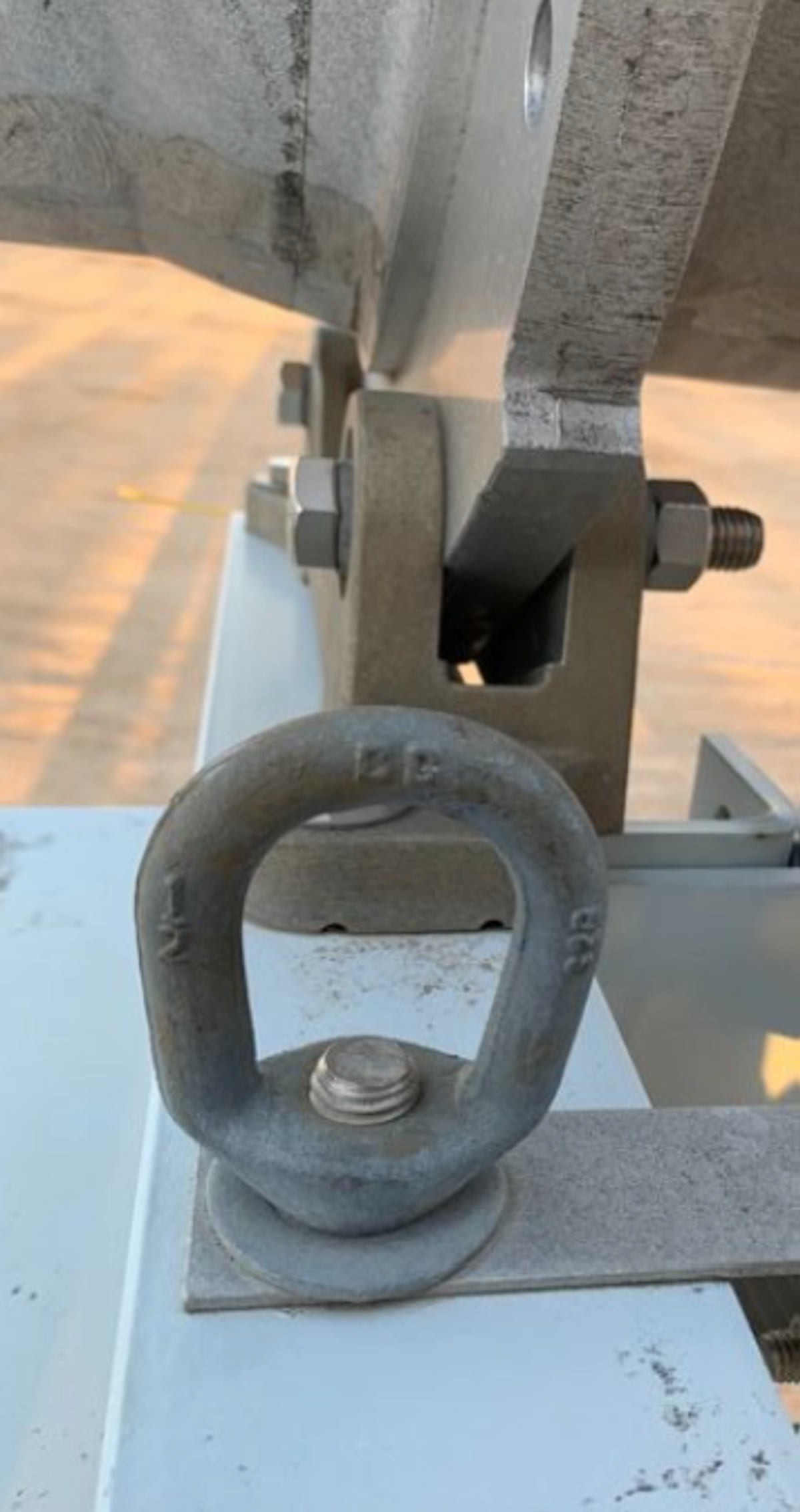Job stopped safely: safe working load limits exceeded
- Safety Flash
- Published on 16 October 2023
- Generated on 21 February 2026
- IMCA SF 24/23
- 2 minute read
Jump to:
Work was stopped during the practical evaluation portion of rigger training in an onshore industry.
What happened?
It was discovered that the application of eye-nuts were not consistent with their intended use. The task was to install rigging and lift a something using a 4-leg bridle chain with adjustable length legs. The attachment points, for the 4-leg bridle chain to the load were four machined eye-nuts (see illustration).
A student questioned the safe working load limit of the 1/2″ eye-nut, which was assumed to be installed by the manufacturer of the item being lifted.
After researching the eye-nut, a note was found accompanied with the load chart stating that the eye-nut installed was “for in-line picks only.” At that point, work was stopped.
The rigging plan to be used involved rigging on the eye-nuts at a 60° angle. Not only were the eye-nuts not being used as intended, but additionally when picking with sling-angles, load capacities are reduced, which would have put the eye-nuts above their safe working load limit. An alternate load was lifted in this case for training purposes.
This incident, though it is not from within the membership, was passed on to IMCA by a Member.

one of the four machined eye-nuts
What went right?
- The instructor of the class had encouraged a “questioning attitude”.
- The student did not assume the manufacturer-supplied eye-nuts were suitable for the task and questioned the rigging plan.
- Work was stopped.
- This was a real-time example of the importance of inspecting and verifying every link in a rigging plan.
Lessons learned
- Encourage a questioning attitude and a culture where “there are no stupid questions”.
Related safety flashes
-
IMCA SF 33/21
2 December 2021
IMCA Safety Flashes summarise key safety matters and incidents, allowing lessons to be more easily learnt for the benefit of the entire offshore industry.
The effectiveness of the IMCA Safety Flash system depends on the industry sharing information and so avoiding repeat incidents. Incidents are classified according to IOGP's Life Saving Rules.
All information is anonymised or sanitised, as appropriate, and warnings for graphic content included where possible.
IMCA makes every effort to ensure both the accuracy and reliability of the information shared, but is not be liable for any guidance and/or recommendation and/or statement herein contained.
The information contained in this document does not fulfil or replace any individual's or Member's legal, regulatory or other duties or obligations in respect of their operations. Individuals and Members remain solely responsible for the safe, lawful and proper conduct of their operations.
Share your safety incidents with IMCA online. Sign-up to receive Safety Flashes straight to your email.